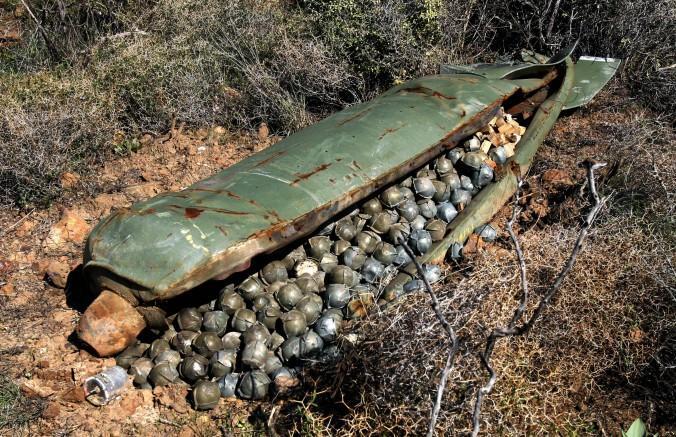
Israel Warns Public about Unexploded Bombs
Israel has issued a warning to its citizens after Iran allegedly fired a missile with a cluster bomb warhead at the country, marking the first known use of such weapons in the conflict. The Home Front Command has urged civilians not to touch fallen objects from the missile strike, citing the potential threat of unexploded submunitions.
According to reports, the missile was fired from Lebanon and struck an open area in northern Israel. The attack has raised concerns about the escalation of violence in the region and the potential risks to civilians.
A cluster bomb is a type of weapon that releases multiple smaller bombs, known as submunitions, over a wide area. These submunitions can remain live and unexploded for extended periods, posing a significant threat to anyone who comes into contact with them.
The warning from Israel’s Home Front Command is a stark reminder of the dangers posed by these types of weapons. The command advises civilians to exercise extreme caution and to report any suspicious items to emergency services immediately.
“In light of the missile attack, we urge the public not to touch any fallen objects, especially if they are suspected to be unexploded submunitions,” the command said in a statement. “We recommend that people keep a safe distance and report any suspicious items to the emergency services immediately.”
The use of cluster bombs is banned under international humanitarian law, with the Convention on Cluster Munitions prohibiting the use, stockpiling, and transfer of these weapons. The convention was signed by over 100 countries in 2008, including Israel, but not Iran.
The attack on Israel comes amid heightened tensions between the country and Iran. The two nations have been engaged in a proxy war in Syria, with Israel launching numerous airstrikes against Iranian targets in recent years.
The use of cluster bombs in the conflict is a worrying development, as it could lead to increased casualties and damage to civilian infrastructure. The weapons are particularly dangerous because they can remain live and unexploded for extended periods, posing a threat to anyone who comes into contact with them.
The International Committee of the Red Cross (ICRC) has expressed concern about the use of cluster bombs in the conflict, citing the risk of harm to civilians and the difficulties of clearing the area of unexploded submunitions.
“The use of cluster munitions is a grave violation of international humanitarian law,” said ICRC spokesperson, Simon Schorno. “These weapons are inherently indiscriminate and can cause unacceptable harm to civilians, including children and women.”
The ICRC has called on all parties involved in the conflict to respect international humanitarian law and to avoid using weapons that pose a significant risk to civilians.
In conclusion, the use of cluster bombs in the conflict between Israel and Iran is a worrying development that poses a significant threat to civilians. The Home Front Command’s warning to the public highlights the importance of exercising caution and reporting any suspicious items to emergency services immediately.
The international community must continue to call for the prohibition of these weapons and for all parties involved in the conflict to respect international humanitarian law. The use of cluster bombs is a grave violation of human rights and can cause unacceptable harm to civilians.
Source: https://thecsrjournal.in/what-cluster-bomb-missile-iran-fired-at-israel/






